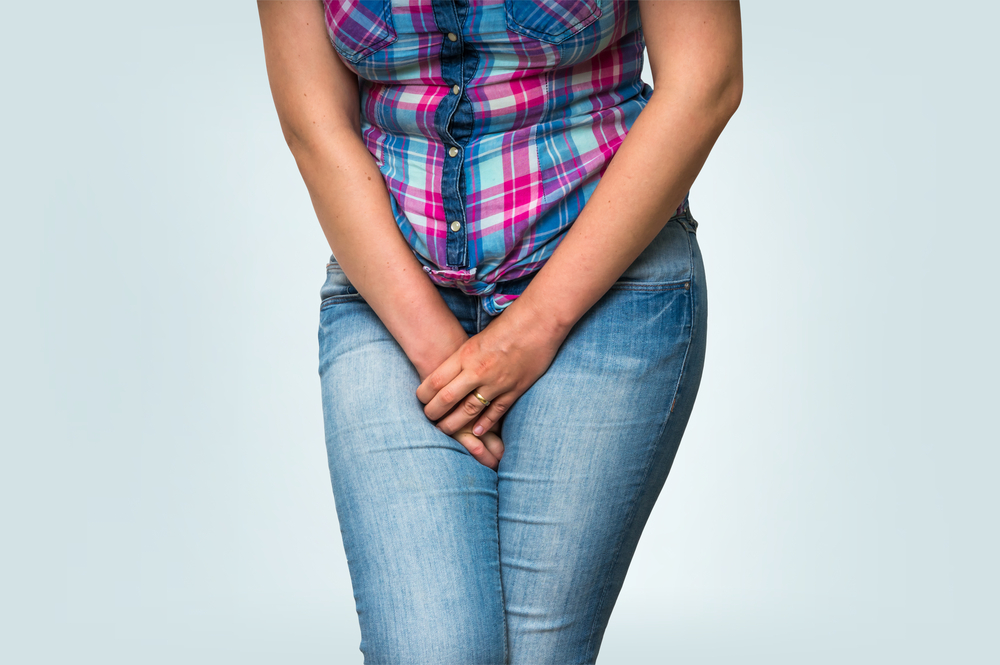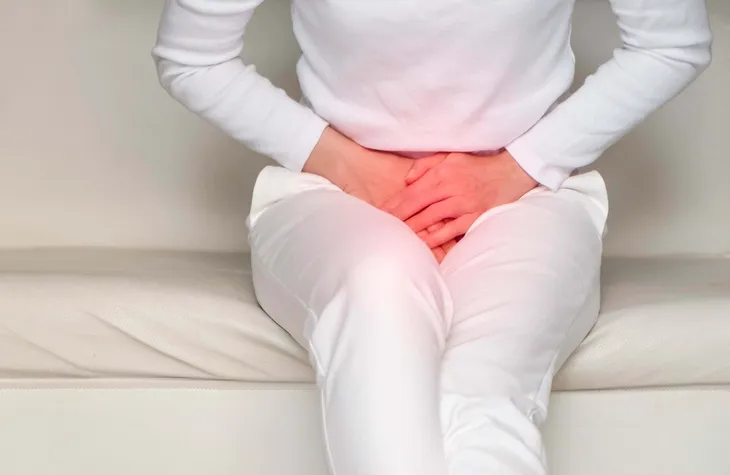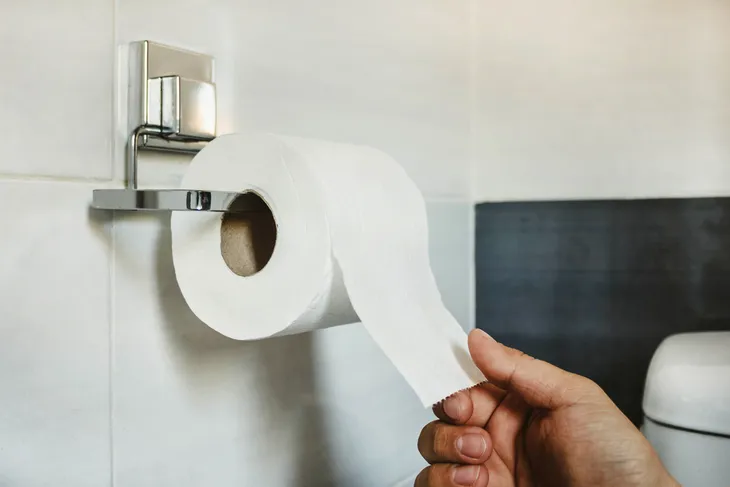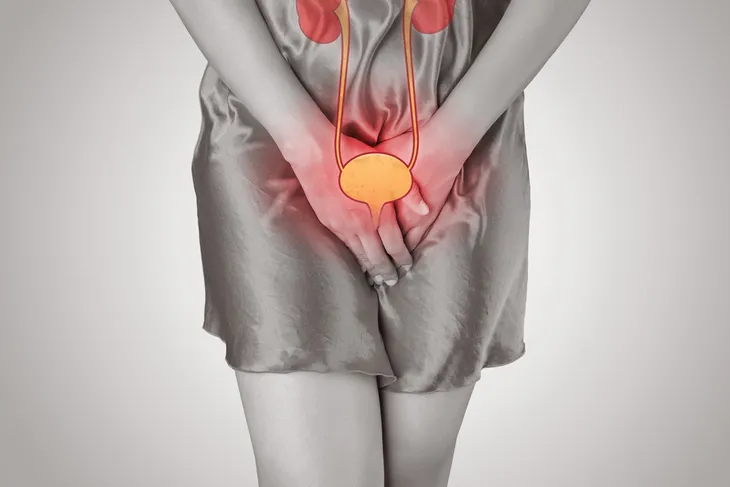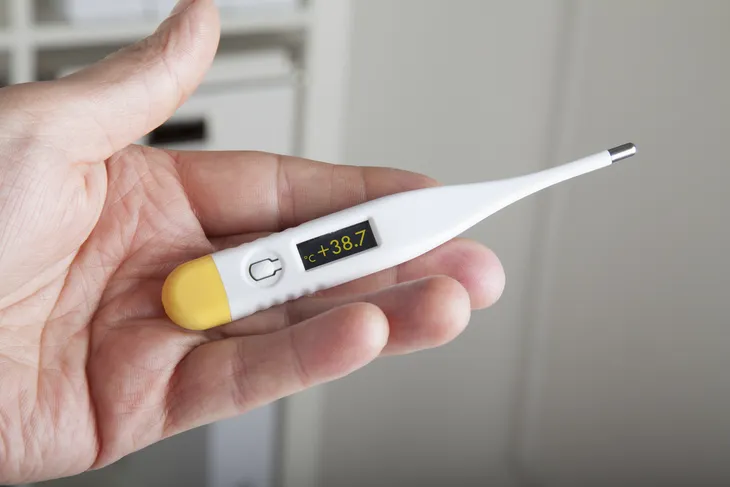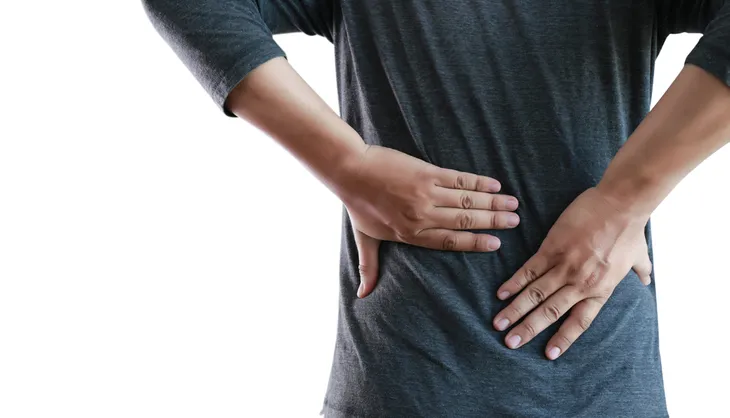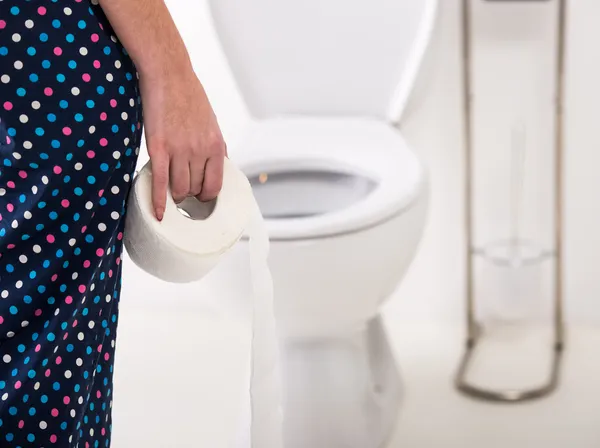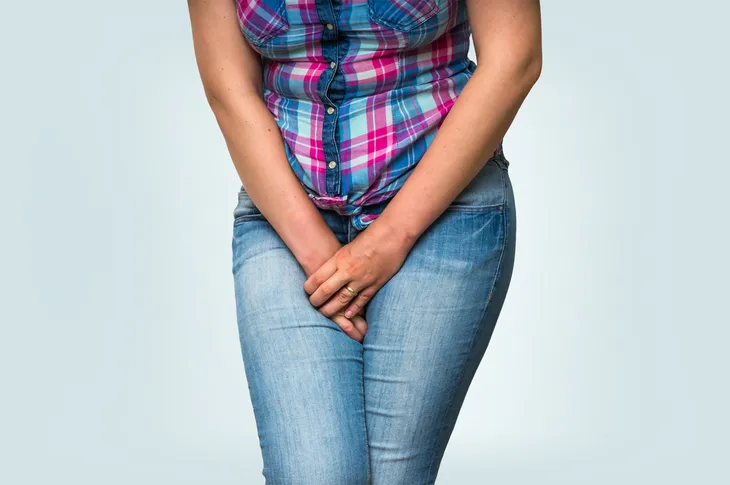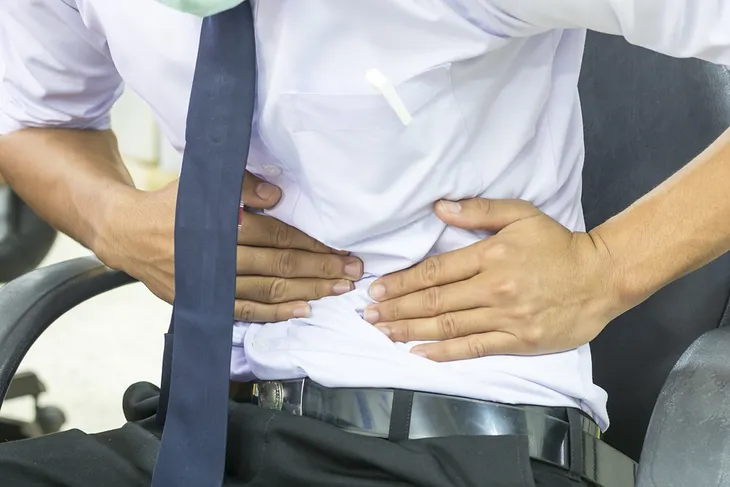Ever had that uncomfortable feeling of having to go to the bathroom, even after you’ve already gone? Or how about a burning sensation during urination? It all sounds really unpleasant and let me tell you, it is! Anyone who’s suffered from a bladder infection can attest to that. Bladder infections are caused by a bacterial infection that inflames the bladder. Unfortunately for women, they’re more prone to getting them because of the length and location of their urethra. In fact, most women will have suffered at least one bladder infection by adulthood. Even though a bladder infection usually isn’t serious, quick action is needed to treat it immediately before it spreads to the bloodstream or kidneys.
Here are 13 common symptoms that could indicate you’re suffering from a bladder infection…
1. Frequent Urge to Urinate
The frequent and sudden uncontrolled urge to urinate, even after you’ve just emptied your bladder, is a very common sign of a bladder infection or a urinary tract infection (UTI). UTI refers to any bacterial infection in the urinary tract, including the kidneys, ureters (the tubes connecting the kidneys to the bladder), urethra (the tube from the bladder to the outside world), or bladder. With a bladder infection, bacteria enters the body through the urethra and travels into the bladder.
Typically, the body will work to eliminate the bacteria by expelling the bacteria during urination. However, if the bladder is overrun with bacteria, and more specifically, if the bacteria attach to the walls of the bladder and begin to multiply, the body will become overwhelmed and won’t be able to eliminate the bacteria effectively. However, with a bladder infection, the body may respond by increasing urination in an attempt to eliminate excess bacteria.
2. Urination that Disrupts Sleep
The urge to urinate at night can be so strong with a bladder infection that it rouses you from sleep and disrupts your sleep several times throughout the night. You may wake frequently throughout the night with the urge to pee, but only do so in small amounts. This can be frustrating because it feels like you’re holding a lot of urine, and even when you urinate, you will likely still feel the pressure and weight, as if you didn’t completely drain your bladder of urine.
As you fight a bladder infection, it’s vital to drink plenty of fluids—water and herbal teas are best—in an attempt to flush the bacteria out of your bladder. Your doctor may also recommend drinking cranberry juice to increase the acid levels in your urine, which may speed up the destruction of bacteria. However, as you increase your fluid intake, you will likely find you have to urinate more often, especially throughout the night.
3. Blood-Tinged Urine
If your urine appears cloudy or contains traces of blood (which is known clinically as hematuria), you probably have a bladder infection, especially if your urine smells foul. If you visit your doctor complaining of cloudy, bloody, and foul-smelling urine, as well as pain when urinating (dysuria), and the frequent urge to empty your bladder, your doctor will likely suspect a UTI.
A doctor will use a test called a urinalysis to diagnose a UTI. During a urinalysis, a sample of urine is taken and examined in a lab for the presence of bacteria, nitrates, white blood cells, red blood cells, and specific chemicals that indicate a bladder infection. A doctor may also use a test called a urine culture to specifically pinpoint the type of bacteria in your urine and make a proper antibiotic prescription.
4. Burning Upon Urination
A painful burning as you urinate is one of the most common symptoms of a bladder infection. When not urinating, your bladder may feel heavy and achy as well. Women are more at risk for a UTI compared to men for basic anatomy reasons. For instance, women have shorter urethras, meaning the path to the bladder is much more convenient for bacteria to travel and infiltrate.
In addition, women have urethras that are closer to the rectum compared to men. This leaves females more at risk than men for bacterial infection, because again, bacteria have a shorter distance to travel. Any urinary tract abnormalities (such as blockages, recent surgery, narrow urethra, pregnancy, or the use of a catheter) can all increase the risk of frequent and recurrent UTIs.
5. Fever
For the elderly or children, a bladder infection may cause a heightened temperature along with chills. This is a sign that the infection has spread to the kidneys. It’s common for any infection to cause a mild to high fever as your body attempts to fight off foreign invaders. In fact, many folks with UTIs are prompted to go to their doctor if they develop a fever.
Bladder infections are treated with prescription antibiotics that are taken orally to kill the bacteria. Typically, a fever will not last long. As soon as the bacteria causing the bladder infection starts to be killed off, your body’s immunity will be stronger and begin to gradually lessen your symptoms of fever, heavy bladder, bladder pain, and burning sensation you feel when you urinate.
6. Exhaustion
Fatigue and lethargy are common with bladder infections, particularly in elderly patients or those with compromised immune health. It might also indicate that the bladder infection has become more severe. Whenever the body becomes overrun with bacteria, the immune system will focus energy on fighting the infection off. This is one reason you often feel exhausted when sick.
Another reason why you may feel fatigued when battling a bladder infection is dehydration. As the body attempts to eliminate bacteria from the body via urine, you will urinate more frequently and the amount of urine with each bathroom visit may increase. This is why keeping your fluid levels up as you battle a UTI is very important. Sip water and herbal teas in an effort to produce more hydration and flush the bacteria out of the body faster via urination.
7. Inflammation
A bladder infection results in a painfully swollen bladder and urethra, which causes pain and a constant weighted sensation in the lower abdomen. Bladder infections are the result of bacteria that travel from the urethra up into the bladder, attach to the bladder walls and begin to multiply. The result is cystitis, which doctors refer to as inflammation of the bladder.
If your doctor diagnosis you with a bladder infection, he or she will typically prescribe oral antibiotics in an attempt to kill the bacteria that are causing the bladder inflammation. In the meantime, you may experience several side effects of an inflamed bladder, including a heavy feeling in your abdomen, pain and burning sensations when you urinate, and an increased urge to urinate.
8. Bedwetting
Young children and elderly patients with bladder infections will often be unable to control their bladders, particularly during sleep, which may result in embarrassing bedwetting. However, the urge to urinate may become more frequent and pressing as the bladder infection worsens. This may mean you have the urge to urinate suddenly in your sleep, and may be unable to make it to the bathroom in time.
The sensation that occurs with a UTI can differ from person to person. However, many characterize a bladder infection with a weighted feeling in the abdomen (or bladder), that causes a frequent and sudden urge to urinate. This may occur during the night, especially if there is any pressure placed on the bladder. You may also feel a burning or tingling sensation when you urinate, and your urine may smell foul and be blood-tinged.
9. Back Pain
Lower back pain is common with serious bladder infections, especially if the bacteria enters the bloodstream or spreads to the kidneys. This is due to the location of the bladder in the body. Our bladders are a muscular sac that’s situated in the pelvis, just above and behind the pubic bone. When the bladder is empty, it’s about the size and shape of a pear. However, when the bladder is full and inflamed, as is the case with a UTI, the size of the organ enlarges and can press on the pelvis and even cause pain and pressure in the lower back.
This is why when diagnosing a bladder infection, your doctor may ask you if you have any pelvic area discomfort as well as pressure or pain in the lower abdomen and lower back. Your doctor may also press into your lower abdomen gently to explore the area for pain and signs of inflammation. In addition to a physical examination, your doctor may also perform a urinalysis, to examine a urine sample for traces of bacteria and other foreign germs.
10. Foul Smelling and Discolored Urine
Have you ever noticed that urine can sometimes have a bit of a smell after drinking lots of coffee or eating lots of asparagus? It happens. It also occurs during a bladder infection. According to Women’s Health, the urine that has come from an infected bladder will have a strong odor to it that smells like ammonia.
In addition to having a bit of a strange smell or even blood in the urine, a bladder infection can cause cloudy urine. Usually our urine is a light-yellow color depending on what you’ve been drinking (water, juice, or coffee). But when the urinary tract is fighting off an infection, according to Health24.com, “It can cause pus (containing dead skin cells, bacteria and white blood cells) to appear in your urine, giving it a cloudy or murky appearance.”
11. Bladder Leakage
Bladder leakage is common in older women. Most people who have a bladder infection will experience one or more of the other symptoms on this list. Women who’ve gone through menopause are at a higher risk for developing a bladder infection because of their decrease in estrogen. They are also more susceptible to asymptomatic infections, says Women’s Health.
“Leakage is one of the symptoms that might bring them in, and when we’re checking we’ll find a UTI,” says Jessica Shepherd, MD, an Obstetrics and Gynecology (OB/GYN) specialist base in Chicago, when talking to Women’s Health. “Women can’t sense when their bladder is full, and when you let urine sit there for too long you can get infection,” says Dr. Shepard.
12. Shaky, Tired, and the Chills
If you’re experiencing flu-like symptoms along with a bladder infection, it could mean the infection has traveled into the kidney’s, which is much more serious. Healthline writes, “A kidney infection will often cause fever, chills, nausea, and vomiting. You’ll typically feel quite ill.” If this is the case, seek medical attention right away. Kidney infections, which are known clinically as pyelonephritis, are serious.
Women’s Health adds that these symptoms could “be a sign of sepsis, which mean it’s affecting your organ systems and is in your bloodstream.” This is also a serious complication. If you feel shaky, tired, and have the chills, along with the other symptoms on this list, go to the doctor.
13. Sore Abdomen
In addition to back pain, someone suffering from a bladder infection will also experience a sore abdomen. Cystitis occurs when the bladder becomes inflamed from an infection, and one of the most common signs is sensitivity in the abdominal region. “Pressure on your pelvis, particularly around the pubic bone, can cause some serious discomfort, especially when coupled with frequent, painful urination,” writes Health24.com.
